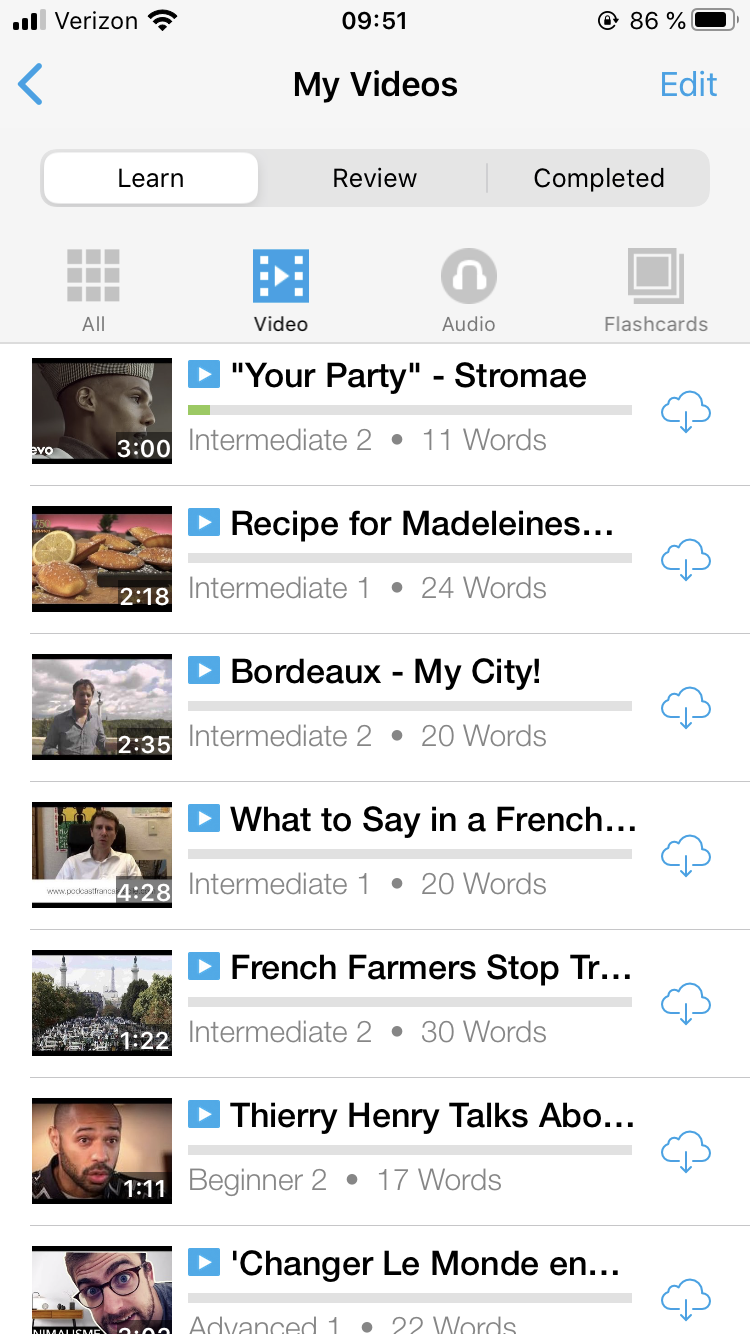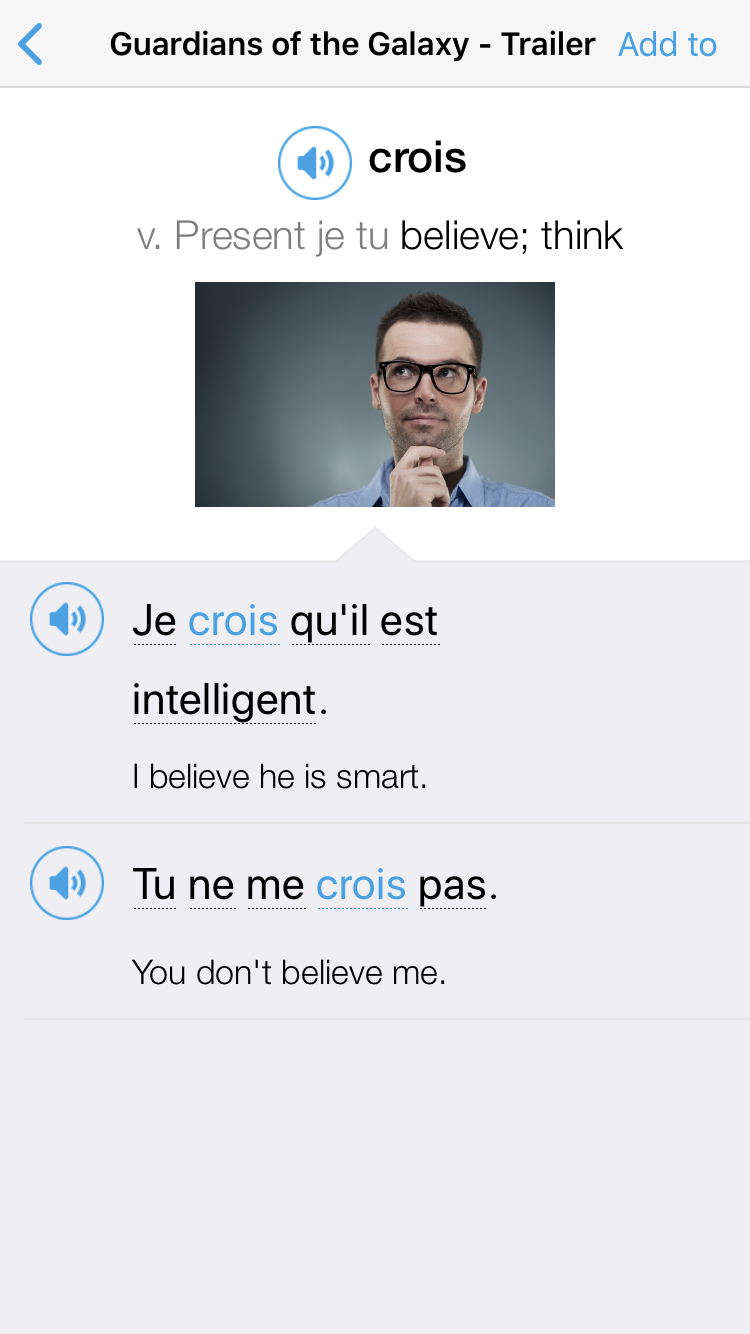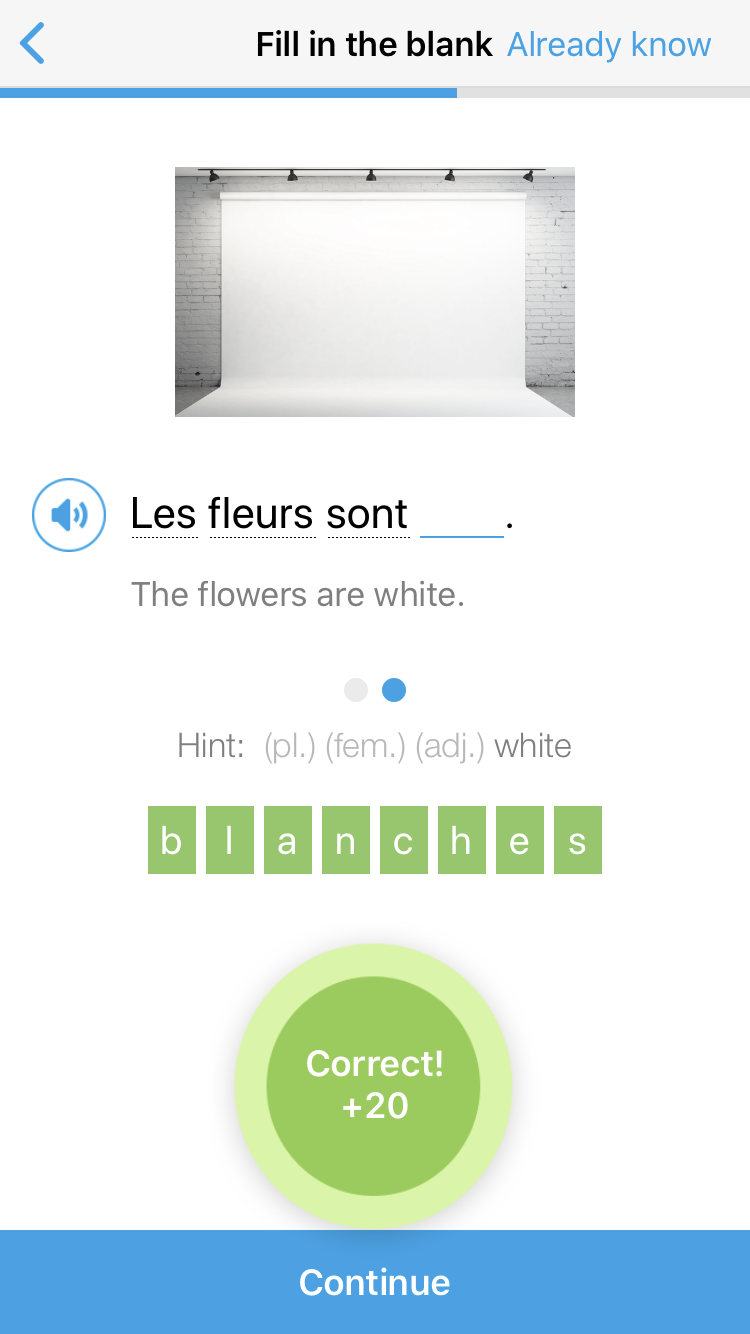
[ad_1]

Likelihood is, you’ve been focusing your studying actions to arrange you for communication with grown-up French people.
That’s beautiful and all, nevertheless it additionally means you’re lacking out on one of many best, cutest demographics of Francophones.
And, you’re omitting a complete vary of essential French vocabulary—the brief, enjoyable, cutesy phrases that we’ll cope with on this publish.
Infants and kids are a pleasure to speak to, particularly for those who’re simply beginning to be taught French. Francophone youngsters make use of a extra restricted set of vocabulary and have a tendency to talk extra slowly than adults, and like little ones anyplace they are typically extra artistic, compelling and goofy than stodgy outdated farts like us.
That mentioned, there are challenges. I’ve to confess I’ve a little bit of hassle understanding a pricey one-year-old Nantois pal, who communicates with what I personally hear as the only syllable pah. His mother and father have translated this all-purpose missive for me, variously, as “mom,” “father,” “milk,” “foot,” “dragon” and “outdoors.”
However at the same time as they sharpen their abilities with enunciation, French kids (and their mother and father) nonetheless make use of loads of distinctive vocabulary that you just’re not going to listen to out clubbing, on a date or in your enterprise conferences. Thus this publish, which ought to shortly get you in control.
Remember as effectively that a few of this childhood vocabulary can also be utilized by older Francophones, particularly once they’re being sarcastically cutesy and infantile. For instance: “Envie de faire dodo ?” (Would you like your nappy time?), when mentioned to you on a dance ground at 4 a.m., is both a come-on or, extra probably, a sign that you just’re not dancing fairly as sharply as you have been on the prime of the night time.
Obtain:
This weblog publish is offered as a handy and transportable PDF that you just
can take anyplace.
Click on right here to get a duplicate. (Obtain)
38 Phrases for French Child Speak
Right here I’ve outlined “French child discuss” because the language you’ll use to speak to infants and about infants.
1. areuh areuh — That is the meaningless noise that infants make, like our “goo goo ga ga,” as interpreted by the French ear.
2. mama — (f.) That is the brief model of maman (“mommy”) which is what very younger kids name their moms.
3. papa — (m.) The casual model of père (father). When you’ve gotten an ornery, fiesty, poopy or vomity younger Frenchman in your knee, you possibly can say “Allez hop, tu veux aller voir ton papa ?” (“Right here we go, wanna go see your dad?”)
4. bobo — (m.) That is an “owie” but additionally, hilariously, the French time period for a “hipster” (shortened from bourgeois bohème, or “bourgeois bohemian”). Please, pricey readers, please please please head over to Paris’ third arrondissement and punch a mustachioed 20-something within the face so to check out the phrase “le bobo a un bobo ?” (“the hipster has an owie?”).
5. toutou — (m.) a doggy; un chien is the usual phrase.
6. dada — (m.) a horsey; un cheval is the usual phrase.
7. dodo — (m.) This noun refers back to the act of sleeping or to bedtime. “Au dodo !” means “let’s get to mattress!” The horrific lifetime of precise Parisians (versus the glorified fantasy of each day red-wine-and-baguette picnics below the Eiffel Tower) is usually described as métro, boulot, dodo (metro, work, sleepy time).
8. lolo — (m.) breast milk; le lait is the usual time period.
9. zizi — (m.) That is the willy or wee-wee; la chew is the slang that older youngsters and grown-ups use for the penis, and le pénis is the usual phrase.
10. prout (m.) — This can be a fart, and in addition, in keeping with the French ear, the onomatopoeia for the sound you make whereas performing one. I personally discover it a problem to even type that French r and specific ou vowel sound with my entrance finish.
11. pipi — (m.) That is wee, that’s, the infantile time period for urine. Grown-ups could name it la pisse, and medical doctors, l’urine.
12. popo — (m.) poop
13. caca — (m.) That is additionally poop. Faire caca is a standard option to discuss to kids about doing quantity two, and you’ll even go away off the noun object itself to get a sentence like Il a fait dans sa culotte. (“He pooped himself,” or actually, “He made in his underpants.”)
14. doudou — (m.) That is any blankey or cuddly object {that a} small baby drags round. This can be used as a female phrase with some audio system.
15. nounours — (m.) That is extra particularly a teddy bear.
16. ouah-ouah — (m.) This is usually a time period for doggy, and it is usually extra generally what the canine says.
17. minou — (m.) This can be a kitty or a pussycat. It’s used with kids on this sense, however bear in mind that amongst adults it will probably have the identical, crude second which means because the English phrase, referring simply to the feminine intercourse genitals (to not a girl herself) and doesn’t sound harsh or sexist.
18. joujou — (m.) This can be a toy; the usual phrase is jouet. Faire joujou is the verb for “to play” (jouer in normal French). I’ve discovered that “t’as envie de jouer ?” (“do you’re feeling like taking part in?” is fairly nugatory for attempting to distract a sobbing younger Frenchman, whereas “montre-moi ton joujou preferé” (“present me your favourite toy”) works wonders.
19. maître/maîtresse — (m./f.) That is the time period for “trainer” that’s utilized by main college college students. It’s common for kids to make use of simply these phrases in immediately addressing their lecturers, along with the plain Monsieur/Madame (Mr./Ms.) final title right here.
20. élève — (m./f.) That is used to explain college students in main and secondary colleges; main college college students are additionally typically simply known as les enfants (“the kids”).
21. étudiant/étudiante — (m./f.) Watch out not to make use of this with kids; this phrase is mostly reserved to explain college college students.
22. professeur — (m./f.) This can be a trainer of junior excessive, highschool and college college students. Often, professeure is used for a feminine trainer, although the Academie française hates this. The shortened prof is definitely the most typical option to consult with a trainer at these ranges, and avoids the sophisticated problems with feminization of nouns describing job positions.
23. bibi — (m.) This can be a child’s bottle, and is brief for biberon.
24. hop-là — Say this when an inexperienced walker takes a tumble, like our “oopsy-daisy.”
25. nounou — (f.) That is the babysitter or nanny; kids who’re too younger for la maternelle (see beneath) could aller chez la nounou (go to the babysitter’s/day care) whereas their mother and father work.
26. risette — (f.) That little scrunchy, contented half-grimace that infants make and that their mother and father delightedly interpret as a smile has no correct descriptor in English, however now you a minimum of have the phrase for it in French. “Tu fais une risette ?” (“Are you making a little bit grin?”) is what a mom may crow to her delighted younger man earlier than she realizes that the supply of his pleasure is having simply defecated himself.
27. coco — (m.) This can be a infantile time period for “egg,” borrowed from the time period coquille (shell). The usual French time period is œuf. Mon coco means “my darling” and coco can also be the usual phrase for “coconut.”
28. quenotte — (f.) a “tooth”; the usual phrase is une dent.
29. tantine — (f.) auntie; the usual phrase is une tante. This child discuss phrase is a little bit bit old school, so that you won’t be capable of use it a lot with fashionable infants.
30. tata — (f.) That is one other phrase for auntie, however watch out because it doubles as a dated pejorative for “gay” or “sissy.”
31. tonton — (m.) uncle; un oncle is normal.
32. pépé — (m.) grandpa, gramps; un grand-père is normal.
33. mémé — (f.) grandma, granny; une grand-mère is normal. For each of those child discuss phrases for grandparents, needless to say there are tons of variations, simply as there are in English!
34. menotte — (f.) This can be a baby’s cute little hand or fist; une essential is the usual phrase. In its plural type, les menottes are, in distinction, handcuffs.
35. non — This, after all, means “no” and most children appear to undergo a section during which it’s simply hilarious to say this in response to all the things.
36. faire sisite — That is the infantile slang verb for “to take a seat down”; s’asseoir is the usual model.
37. casse-pieds — (m./f.) That is what you name a baby who’s getting in your nerves (however please to not his face). It actually means “break-feet.”
38. jouet de bain — (m.) tub toy
Understanding Education in France
When a child boasts that he’s in CM2, it’s best to after all reply “C’est très bien !” (that’s excellent!).
However right here’s a cheat sheet so that you really know what these youngsters are speaking about. The French system of grades or ranges is bewildering to individuals from anyplace else, however is of course a central a part of youngsters’ lives and is essential to know if you wish to perceive them. I’ve additionally discovered this info to be key for getting via fairly a couple of grownup conversations that begin out with one thing like “Quand j’étais en CE2…” (“Once I was in CE2…”).
You’ll virtually at all times hear the grade degree referred to in dialog as an abbreviation like these above, so if nothing else keep in mind the abbreviations and the corresponding ages. If you happen to overlook what one thing means, you can too simply ask “Vous aviez quelle âge ?” (“How outdated have been you?”) to get context on your interlocutor’s forthcoming story of childhood misadventure.
École maternelle — That is nursery college, merely referred to as la maternelle for brief, the place most kids enter the French training system, at age 3. (In Switzerland, it’s referred to as école enfantine.) The primary-year college students begin in petite part (PS), or the little part. 4-year-olds begin in moyenne part (MS), or the center part. And five-year-olds begin in grande part (GS) or the good/older part.
École primaire — Elementary college is obligatory from the age of six, and kids are divided into the next ranges:
cours préparatoire (CP) — preparatory course, began at age 6
cours élémentaire première année (CE1) — first-year elementary course, began at age 7
cours élémentaire deuxième année (CE2) — second-year elementary course, began at age 8
cours moyen première année (CM1) — first-year center course, began at age 9
cours moyen deuxième année (CM2) — second-year center course, began at age 10
Collège — French junior highs/center colleges stretch on for 4 horrific years. The grade ranges rely down backwards to the bac, or baccalauréat, the end-of-high-school examination. We thus have:
sixième (6ème) — sixth, began at age 11
cinquième (5ème) — fifth, began at age 12
quatrième (4ème) — fourth, began at age 13
troisième (3ème) — third, began at age 14
Lycée — French excessive colleges final for 3 years, and at this level college students could already be divided up in keeping with their perceived destinies within the job market. Lycée général (common highschool) is for many who pursue a college training, lycée technologique (technological highschool) results in a shorter course of research after highschool and the lycée professionnel (skilled highschool) is meant to arrange college students for work immediately after highschool. These colleges may very well coexist collectively in lycées polyvalents (common excessive colleges).
seconde (2de) — second, began at age 15
première (1ère) — first, began at age 16
terminale (Time period/Tle) — final, began at age 17
Baccalauréat — This extremely essential examination, often referred to easily as le bac, marks the top of highschool for nearly all French college students. It’s really an entrance examination for universities and technical colleges. It’s graded out of 20, with 10 thought-about passing. Only a few college students get something over 16. The questions are stored very secret till the check after which extensively mentioned within the press every year. Along with French, the check is more and more taken in Catalan and the opposite languages of France by small numbers of scholars, thanks specifically to higher elementary and secondary training in these languages.
A Few Traditional Kids’s Characters to Assist You Study
If you happen to’re going to talk with French kids, it’s price realizing a couple of of the favored characters who’re specific to their world, past apparent worldwide favorites like Harry Potter.
“Le petit prince” (The Little Prince) — The well-known watercolor illustrations and story by Antoine de Saint-Exupery inform of a pilot (and our narrator) who winds up misplaced in a desert the place he meets a younger prince from a small asteroid. “S’il vous plaît…dessine-moi un mouton !” (“Please draw a sheep for me!”) the prince calls for of the pilot, in one of many story’s most well-known traces. The pilot makes an attempt to conform, however the prince is unhappy with any of the pilot’s drawings. Lastly the pilot attracts a field and says, “Ça, c’est la caisse. Le mouton que tu veux est dedans.“ (“That is the field. The sheep that you really want is inside.”) This little bit of creativity satisfies the prince. The final failure of adults to be artistic is among the e book’s main themes.
Titeuf — This boy with an immense blond cowlick has been a star of comics, a TV present and a movie, and may be very common in France. Of their adventures, the boy and his pals try to grasp the bizarre and mysterious grownup world, together with romance. One in every of Titeuf’s catchphrases is “C’est pô juste” (“It’s not honest,” which might be c’est n’est pas juste in normal written French). The French authorized system has taken the time to find out that it isn’t within the curiosity of kids to be really given the title Titeuf by mother and father who’re followers of the character, since one is supposed to giggle at him. The title is due to this fact not allowed for use in actual life.
“Le petit Nicolas” (Little Nicolas) — This hero of a collection of French kids’s books and two motion pictures is France’s reply to “Dennis the Menace” or “Dwelling Alone.” Nicolas and his pals reside in an idealized Nineteen Fifties France and get into capers that satirize each kids’s misunderstanding of adults and the boring, hypocritical world of the later. Right here he’s on trip, within the sequel movie:
Now It’s Your Flip…
This must be sufficient to get you off to an excellent begin in communication with the tadpoles.
There are additionally a couple of cultural variations to concentrate on. The primary one is that French kids are anticipated to behave in a really civilized, stoic, quiet kind of approach—and in comparison with Anglophone kids they often do. In brief, they behave like tiny adults.
Anglophone journalist-parents typically describe this French parenting type in approving phrases. For no matter an insouciant tonton‘s opinion is price, I believe this French parenting type negates childhood. Why ought to an eight-year-old be anticipated to take a seat completely nonetheless and never clown round for a complete three-hour meal?
Distinction that to Italy or Spain, the place, if an 8-year-old’s stray soccer ball smacks a stranger within the head in a plaza, so long as there’s no blood, everybody expresses their admiration for the budding star athlete.
However go on, ask the littlest French ones what they consider all this. You now have the vocabulary.
Obtain:
This weblog publish is offered as a handy and transportable PDF that you just
can take anyplace.
Click on right here to get a duplicate. (Obtain)
And yet one more factor…
If you happen to like studying French by yourself time and from the consolation of your good system, then I would be remiss to not inform you about FluentU.
FluentU has all kinds of nice content material, like interviews, documentary excerpts and net collection, as you possibly can see right here:
FluentU brings native French movies with attain. With interactive captions, you possibly can faucet on any phrase to see a picture, definition and helpful examples.
For instance, for those who faucet on the phrase “crois,” you may see this:
Observe and reinforce all of the vocabulary you’ve got discovered in a given video with be taught mode. Swipe left or proper to see extra examples for the phrase you’re studying, and play the mini-games present in our dynamic flashcards, like “fill within the clean.”
All all through, FluentU tracks the vocabulary that you just’re studying and makes use of this info to present you a very personalised expertise. It offers you further apply with tough phrases—and reminds you when it’s time to overview what you’ve discovered.
Begin utilizing FluentU on the web site together with your laptop or pill or, higher but, obtain the FluentU app from the iTunes or Google Play shops.
[ad_2]




